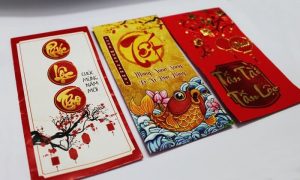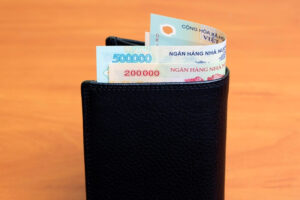International tourists traveling to Vietnam have complete flexibility in withdrawing money at ATMs or banks throughout the country. All regulated financial transactions are guaranteed to be safe, fast, and convenient.
Please check various aspects of banks in Vietnam when you work with them!
Types of banks available in Vietnam
Currently, Vietnam has 4 main types of banks:
1. State bank: That is the banks under the direct management of the State Bank of Vietnam. These include National banks with 100% government investment capital, Joint-stock banks with more than 50% of investment capital from the government, and the rest from individuals and businesses. For example: Vietcombank, Vietinbank, BIDV, and Agribank.
2. Private bank: These banks with investment capital entirely from private organizations and individuals. They operate following the regulations of the State Bank of Vietnam, such as ACB, Techcombank, and TPbank.
3. Joint venture bank: These are banks established and headquartered in Vietnam, in which capital is contributed by one side being a Vietnamese bank (one or more banks). The other part is a foreign bank ( one or more banks). Joint venture banks in Vietnam include Indovinabank and VPbank.
4. Foreign banks in Vietnam: include banks established in Vietnam with 100% foreign investment. Foreign bank branches are located in this country, such as HSBC, Cathay United Bank, Wooribank, and Standard Chartered.
The top banks in Vietnam that you can make transactions
In addition to joint venture banks and foreign banks headquartered in Vietnam, many domestic banks, including state and private banks, are considered highly reputable and safe.
State banks rated best in 2023:
- Joint Stock Commercial Bank for Foreign Trade of Vietnam – Vietcombank
- Vietnam Joint Stock Commercial Bank for Industry and Trade – Vietinbank
- Joint Stock Commercial Bank for Investment and Development of Vietnam – BIDV
- Vietnam Bank for Agriculture and Rural Development – Agribank
Private banks ranked prestigiously in Vietnam in 2023
- Vietnam Technological and Commercial Joint Stock Bank – Techcombank
- Asia Commercial Joint Stock Bank – ACB
- Vietnam International Commercial Joint Stock Bank – VIB
- Military Commercial Joint Stock Bank- MB
- Saigon Thuong Tin Commercial Joint Stock Bank – Sacombank
These banks have a comprehensive branch system across the country, so it is highly convenient for you to choose to make transactions.
The ATMs of the above banks are also present throughout 63 provinces and cities in Vietnam. Therefore, you can easily find reputable banks and ATM addresses for your financial activities.
However, when visiting villages in Vietnam or mountainous regions, you need to carry Vietnamese money to spend, not cards.
>> Please check more: How much money should I carry to Vietnam?
Card types accepted at ATMs in Vietnam
Most ATMs of Vietnamese banks accept international payment cards, such as Visa, MasterCard, American Express, JCB, Discover, Diners Club, and UnionPay. Among them, Visa and MasterCard are the most accessible cards to use in this country.
It also means that some business establishments in Vietnam have a form of card payment. They will also accept payment when foreign tourists own one of the seven types of cards above.
How much is the fee for using international cards in Vietnam?
You have to pay transaction fees when using cards for every Vietnamese bank.
The following fees for international card payment include:
- Foreign currency exchange fee: Almost all Vietnamese banks offer this fee in the range of 3% to 4% of the total amount in one transaction.
- Cash withdrawal fee: This is a fee you pay when withdrawing money using international payment cards. It is about 4% of the total in one transaction.
Thus, if you make a payment by swiping a card, the fee you need to pay is about 3-4% per transaction. A cash withdrawal at ATMs costs about 7 – 8% for a transaction.
When do you need to go to the bank?
Withdrawing money from an ATM or using cards can be done quickly. But, in some situations, you need to go to a bank, such as:
- Exchanging your money into Vietnam Dong;
- Having trouble using the card;
- You need to withdraw an amount more significant than the limit at ATMs;
- Any other unforeseen transaction issues.
Do I need an interpreter when working with the bank tellers?
The foreign language skills of employees at Vietnamese banks are not highly appreciated; only speaking English is the most popular language used here.
Therefore, it is better to go with an interpreter to ensure a quick transaction, especially if you do not speak English well. This thing will enhance your ability to resolve issues at banks more effectively.
The development of Vietnam’s banking system has brought many benefits to the locals. It also brings convenience and safety in financial payments to almost all foreign tourists traveling to Vietnam.
Owning an international card accepted by banks here allows you to feel secure withdrawing your money unless you are out of the city. Many reputable banks with extensive branch systems also make transactions easy during your journeys in Vietnam.



